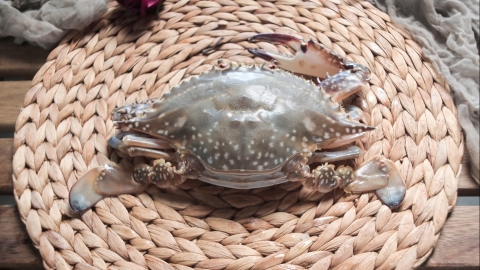Can swimming crabs (Portunus trituberculatus) be infected with amoebas? Are they safe to eat?
Under normal circumstances, swimming crabs may carry amoebic protozoa, so it is recommended to cook them thoroughly before consumption. They should not be eaten raw or undercooked. Detailed explanation is as follows:

Swimming crabs live in marine or freshwater environments. If the water they inhabit is contaminated, amoebic protozoan cysts may attach to their gills, internal organs, and other areas. Consuming raw or undercooked swimming crabs could allow these parasites to enter the human body through food, causing intestinal infections and symptoms such as abdominal pain and diarrhea. Individuals with weakened immune systems are at higher risk of infection.
When swimming crabs are sourced from clean waters and cooked at high temperatures via steaming or boiling, the structure of the amoebic protozoa can be destroyed, ensuring safe consumption. High temperatures effectively kill the parasites, rendering them inactive. At this point, the nutrients in the swimming crabs can also be better absorbed by the human body, making them a safe food source.
When consuming swimming crabs, fresh specimens should be selected. The shell and gills must be thoroughly cleaned, and the crab should be fully cooked to avoid eating raw or undercooked seafood. If the crab meat appears spoiled or has an unusual odor, it should be discarded immediately to prevent illness.




